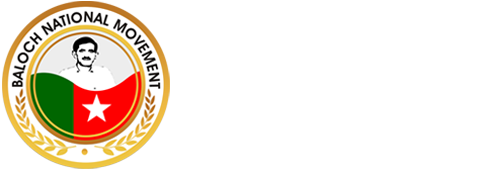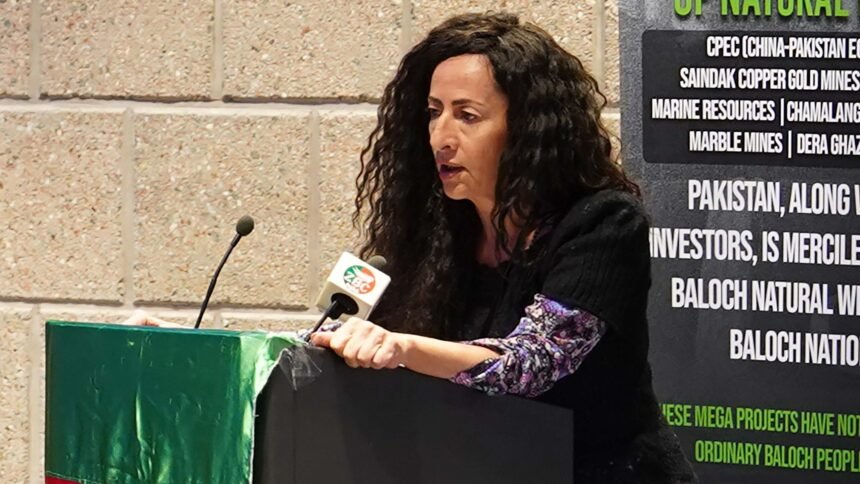Italian journalist Francesca Marino addressed Balochistan’s historical and ongoing issues during the 5th Balochistan International Conference, organized by the Baloch National Movement (BNM). She asserted, “Balochistan is not simply a region of Pakistan. It became part of Pakistan through treachery and deceit. In reality, Balochistan is an occupied territory, illegally taken by force.”
Marino explained that Balochistan’s annexation to Pakistan involved coercion and deceit, with the signing of an accession document that lacked legitimacy. At that time, Kalat, a constitutional monarchy in Balochistan, had its assembly reject the accession twice before it was dissolved. She noted that these historical facts contribute to Pakistan’s continued treatment of Balochistan as a colony, with policies aimed at denying the Baloch people fundamental rights, including the right to use their language in schools and official settings.
She pointed out the role played by Muhammad Ali Jinnah, who was initially the legal counsel for the Khan of Kalat during negotiations with the British for Balochistan’s independence. “Jinnah betrayed the trust of the Khan of Kalat and facilitated the forcible inclusion of Balochistan into Pakistan,” she said, describing how the Pakistani army later entered Kalat and coerced the Khan into signing the accession document.
Marino highlighted how the region has been exploited for nuclear tests and weapons storage while the Baloch people have been marginalized. “In Balochistan, there are more military cantonments than hospitals—unsurprisingly, since there are very few hospitals,” she stated, pointing to the overwhelming military presence compared to the lack of essential services.
The current insurgency in Balochistan, Marino noted, is the fifth uprising in the region, which began after the killing of Nawab Akbar Bugti in 2007. “Since then, the uprising has continued,” she remarked, describing Pakistan’s strategy of extrajudicial killings, mass graves, and the widespread disappearances of Baloch people. She stated that authorities offer implausible explanations for these disappearances, with some officials claiming people went on shopping trips to Dubai or joined insurgents in the mountains.
Marino also discussed how China’s involvement in Balochistan through the China-Pakistan Economic Corridor (CPEC) has further marginalized the Baloch. “Gwadar has become a playground for the elite, while the Baloch have been excluded from development, denied access to clean water, fishing, and basic freedoms,” she said, noting that Chinese and military interests dominate the region’s future.
She emphasized how Chinese investments in Balochistan’s Saindak and Rekodic mines have exploited resources while roads and infrastructure are built to serve Chinese interests, leaving the local population without basic benefits.
Despite the documented human rights abuses, Marino pointed out that Pakistan faces little international pressure due to geopolitical considerations. “What is more concerning is that this ‘Balochistan recipe’ has now been applied to other regions in Pakistan,” Marino said, referring to similar repression in Pashtun, Sindhi, and Kashmiri areas.
She concluded by urging the international community to hold Pakistan accountable. “The only solution is to hold Pakistan accountable under international law, which should apply equally to all states,” she stated, underscoring the need for global attention to Balochistan’s ongoing struggles.
Introduction: Francesca Marino is an Italian journalist with extensive experience covering South Asia. She regularly contributes to Limes – Italian Review of Geopolitics and other leading Italian and Swiss media outlets. Recently, she published a book on Balochistan titled Balochistan: Bruised, Battered, and Bloodied. In 2010, she was awarded the prestigious Italian Journalism Prize, Il Luigiano d’oro.
The full text of the speech


